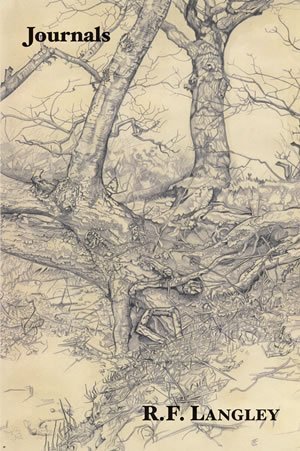Shearsman Store
Langley, R.F.
R.F. Langley (1938–2011) was born in Rugby, educated at Jesus College, Cambridge, and went on to teach English and Art History in secondary schools. He has lived in Staffordshire for most of his life, but the inspiration for much of his poetry came from the landscapes of Suffolk, where he lived until his death in January 2011. While he was not a prolific poet, his work was noticed as long ago as 1979 by Jeff Nuttall, in his column in The Guardian , for its "sense of rhythm, sound and… a concentrated spirit of immense impact". His Collected Poems (Carcanet Press, Manchester) was shortlisted for the 2000 Whitbread Prize for Poetry and subsequently there were several pamphlets from small presses, and a follow-up collection from Carcanet, The Face of It , as well as frequent appearances in periodicals, particularly in P.N. Review , where extracts from his journals appeared regularly, and the London Review of Books. He kept a journal for over forty years, and there was often interaction between this and the poetry.
R.F. Langley's poems focused on particulars of places and creatures. If they are mysterious they were also as true to immediate fact as the poet could make them, and if they are odd it is often because particular experiences are so. They are occupied with sound, including internal rhyme, and would be disappointed with themselves if they did not tackle complex ideas, philosophical, psychological and aesthetic. They are always driven by etymological investigation, and often directly interested in why, on each occasion, this is necessary. It is poetry about observation, about how the detail of the world is being registered. The poems themselves are part of the data, and reward analysis. It has been said that they are informed by late-modernist experimentation but have also a particularly English nostalgia and sense of loss. Charles Olson, Objectivism, Pound, Stevens, Hopkins, Wordsworth and much Shakespeare. He writes: " A Midsummer Night's Dream might still be the answer to everything."
Text adapted from the author's page at the Poetry Archive where a recording can also be heard.


